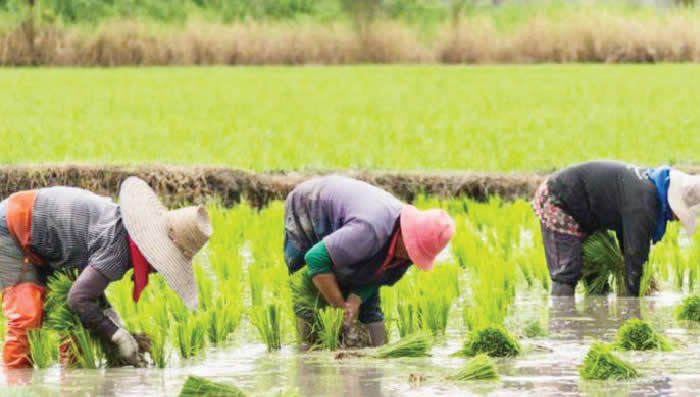Read in
Agriculture is an important sector of the Nigerian economy, providing employment and income for millions of people. However, the sector faces many challenges, including low productivity, poor infrastructure, and limited access to technology. One key area where Nigeria lags behind other countries is agricultural mechanization.
As we all know mechanization is defined as the art of using machineries to hasten production, accomplish task and reduce fatigue and human labor in order to produce better quality goods and services, its also a vital aspect of the economy as agriculture accounts for about 22% of Nigeria’s gross domestic product (GDP) and employs about 70% of the population, but that productivity is low and food security is a major concern.
The current state of agricultural mechanization in Nigeria is really baffling as according to Food and Agriculture Organization (FAO), only about 1.5% of Nigeria’s farmland is cultivated using tractors or other machinery, compared to an average of 35% in other African countries. This is due to a variety of factors, including the high cost of equipment, limited access to credit, and a lack of skilled operators. Farmers often have to rely on manual labor or animal power to till their fields, which is slow and inefficient. This can lead to lower yields and higher costs, as well as physical strain for the farmers.
With that said agriculture in Lagos, Nigeria is largely rain-fed and climate change negatively impacts crop productivity by decreasing crop production and soil fertility, limiting the availability of soil water, increasing soil erosion, and contributing to the spread of pests. With this in mind it makes sense why additional agricultural machines should be utilized.
The level of Nigerian’s agricultural mechanisation is among the lowest globally, accordingly to the National Agricultural Technology and innovation policy 2022-2027,which was published on the website of the ministry of Agriculture and Rural Development.
The lack of improved agricultural methods has brought about critical challenges faced by Nigerian farmers as:
It makes farming more labor-intensive and time-consuming, which can lead to lower yields and higher costs. It also makes it difficult for farmers to compete with imported food products, which are often cheaper and of higher quality.
in addition with the lack of mechanized agriculture it makes the farmer to use more water, fertilizers and pesticides thereby increasing his or her cost of production.
As luck would have it there are several potential solutions to this problem of agricultural mechanization. One is to increase government investment in the sector, providing subsidies for equipment purchases and training programs for operators.
Another is to encourage private investment, by offering tax breaks and other incentives for companies that invest in agricultural machinery. Finally, there is a need for greater collaboration between government agencies, research institutions, and the private sector to develop appropriate technologies and disseminate them to farmers.
Due to us being in the era of technology it should be made easy for farmers to get in contact with equipment providers and financing options through the use of a mobile phone.
Also with the government intervention with the development of infrastructures like road and power supply so that the usage of agricultural machines can be done smoothly.
If the above solution is brought into consideration it can lead to an Increased agricultural mechanization has many potential benefits for Nigerian farmers. It can reduce labor costs, increase productivity, and improve the quality of crops. It can also help to reduce post-harvest losses, by enabling farmers to harvest and process their crops more quickly and efficiently. Finally, it can help to make Nigerian agriculture more competitive in the global marketplace, by enabling farmers to produce higher-quality products at lower cost thereby increasing the value of the Nigerian currency. it can also help reduce drudgery which hitherto makes it difficult for large scale food production and which has also been making it difficult for Nigeria to meet her food requirement for her teeming population.
furthermore with the adaptation of mechanized system of farming Nigeria has remained the highest producer of yam in Africa and indeed in the world with over seventy (70) % of the total world yam production from Nigeria (Hahn, 1995). This is in addition to the feat the nation has reached over the years in the production of grain.
It is also certain that all the seed or crop planted will germinate about the same time, especially grain seed if mechanization is employed in planting, than what will be obtainable if it is done manually.
If Nigeria must attain maximum food production to feed her teeming population in this present age, our focus must shift from the traditional method of farming to mechanization of both small and medium scale farms which has hitherto remain in the forefront of sustaining food production.
In conclusion, agricultural mechanization is a critical issue for Nigerian farmers. By investing in appropriate technologies and training programs, and by encouraging private investment, the government can help to improve the productivity and competitiveness of the sector, while also providing employment and income for millions of people.



